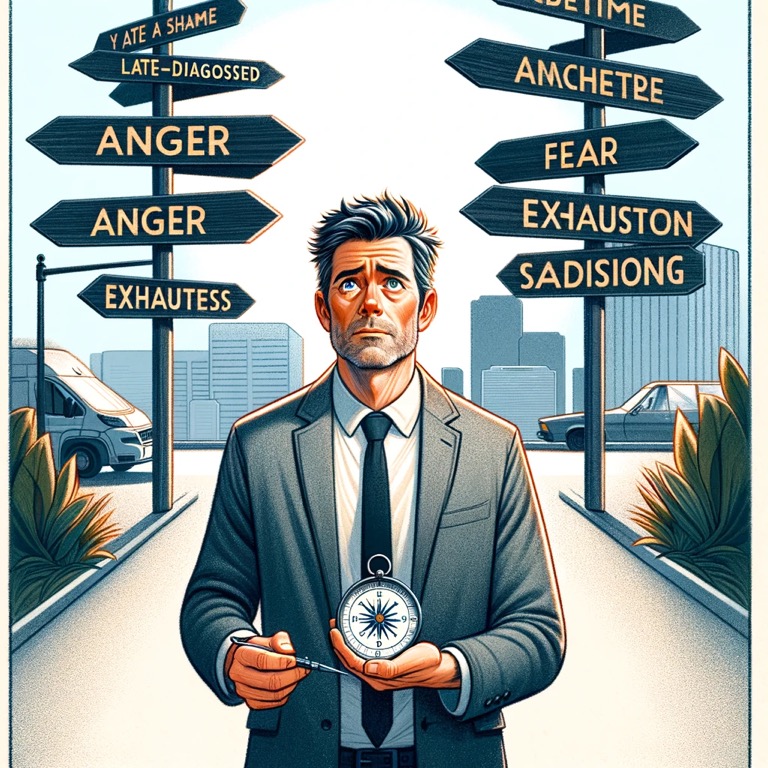
Hello, I’m Gray Miller, and today, I want to share a personal reflection on being a professional adult who was late-diagnosed with ADHD. I’m a cis white male in my mid-fifties from the Midwest, and it was only a year ago (February of 2023) that I had it confirmed that I have been living with ADHD all my life.
Rather than have an exact transcript of the podcast episode, this is a summary for the TL;DL crowd; this is based on an article originally published on Medium.com.
I’ve written on many subjects, but I’m not an ADHD expert. Instead, I have half a century of experience in unknowingly navigating life with this condition — that’s expertise of a sort, right?
The Reluctance to Write About ADHD:
Despite having written over a thousand articles on personal development, I find myself hesitant to write about ADHD. This reluctance stems from a mix of emotions: shame for not recognizing my own condition, anger for the years of misunderstanding, fear about the future, exhaustion from the ongoing struggle, and sadness for the impact on my family.
As a footnote to the exhaustion, I recognize that ADHD, treatable but not curable, presents a lifelong journey of adaptation and self-acceptance.
Five Personal Reflections on Late-Diagnosed ADHD:
- Shame: I have explored numerous self-development techniques, yet I missed recognizing my own ADHD. This oversight challenges my credibility as a writer in this field.
- Anger: The signs were always there, from early school records to my eclectic career path. Discovering these as textbook ADHD symptoms has been both revealing and frustrating.
- Fear: Accepting that ADHD is a permanent part of my life brings anxiety. The dream of a consistent, disciplined life feels unattainable, and the public acknowledgment of my condition raises concerns about societal perceptions and career impacts.
- Exhaustion: The constant search for systems and routines that accommodate my ADHD is tiring. The realization of this condition in mid-life adds to the fatigue, contrasting starkly with peers settling into stable, predictable lives.
- Sadness: The impact of my ADHD on my family, especially the genetic implications for my children and grandchildren, weighs heavily on me. There’s a profound sense of loss for what might have been had I been diagnosed and treated earlier.
Writing about ADHD is challenging
Not only because of the personal struggles it entails but also due to the societal stigmas surrounding it. Have I jinxed my work life forever by being open about my diagnosis? Am I alienating friends and family by talking about it so much?
Maybe. But other people sharing their experiences has been crucial for me and other late-diagnosed adults like me. Discussing these challenges openly fosters understanding and support for all of us navigating life as neurodivergent adults.
What do you think?
Feel free to share your thoughts here in the comments, or email me at gray@adhdopen.space. Background music for this blog post is “Funny Days Together” by Background Music Lab from Pixabay.com.
